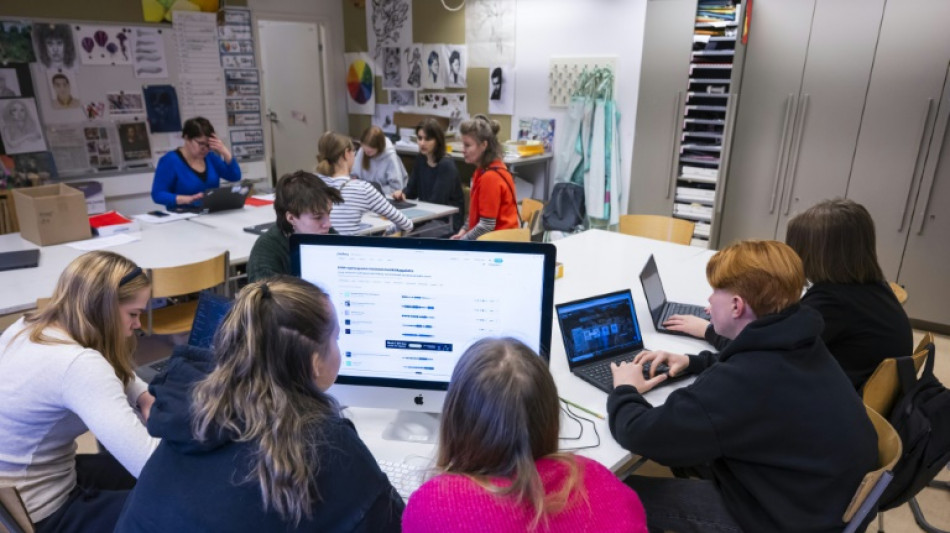
-
 Brignone leads charge of veteran women as Italy celebrates record Olympic haul
Brignone leads charge of veteran women as Italy celebrates record Olympic haul
-
Sri Lanka's Nissanka leaves Australia on brink of T20 World Cup exit
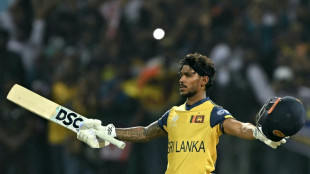
-
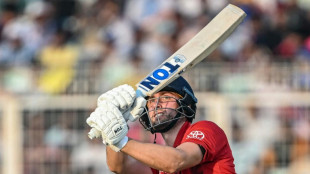 England match-winner Jacks proud, confident heading into Super Eights
England match-winner Jacks proud, confident heading into Super Eights
-
St Peter's Basilica gets terrace cafe, translated mass for 400th birthday

-
 Meillard hails Swiss 'golden era' after slalom win caps Olympic domination
Meillard hails Swiss 'golden era' after slalom win caps Olympic domination
-
Sri Lanka fight back after strong start by Australia's Marsh, Head
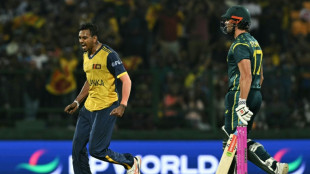
-
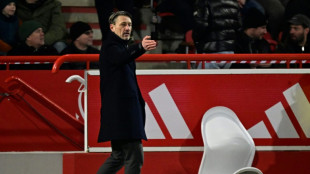 Kovac calls on Dortmund to carry domestic 'momentum' into Champions League
Kovac calls on Dortmund to carry domestic 'momentum' into Champions League
-
Dutch inventor of hit game 'Kapla' dead at 80: family
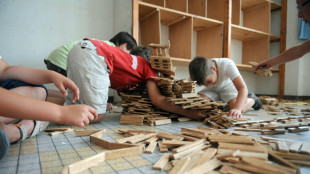
-
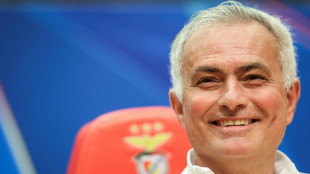 Benfica's Mourinho plays down Real Madrid return rumour before rematch
Benfica's Mourinho plays down Real Madrid return rumour before rematch
-
St Peter's Basilica gets terrace cafe for 400th anniversary

-
 Meillard extends Swiss Olympic strangehold while Gu aims for gold
Meillard extends Swiss Olympic strangehold while Gu aims for gold
-
Meillard crowns Swiss men's Olympic domination with slalom gold

-
 German carnival revellers take swipes at Putin, Trump, Epstein
German carnival revellers take swipes at Putin, Trump, Epstein
-
England survive Italy scare to reach T20 World Cup Super Eights

-
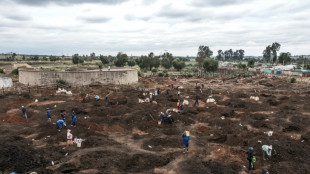 Gold rush grips South African township
Gold rush grips South African township
-
'Tehran' TV series producer Dana Eden found dead in Athens
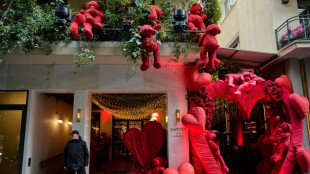
-
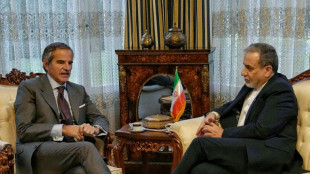 Iran FM in Geneva for US talks, as Guards begin drills in Hormuz Strait
Iran FM in Geneva for US talks, as Guards begin drills in Hormuz Strait
-
AI chatbots to face UK safety rules after outcry over Grok
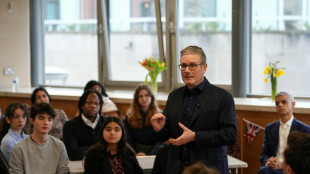
-
 Sakamoto fights fatigue, Japanese rivals and US skaters for Olympic women's gold
Sakamoto fights fatigue, Japanese rivals and US skaters for Olympic women's gold
-
'Your success is our success,' Rubio tells Orban ahead of Hungary polls
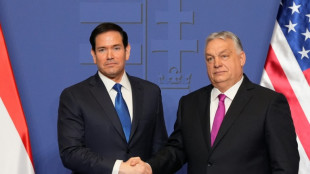
-
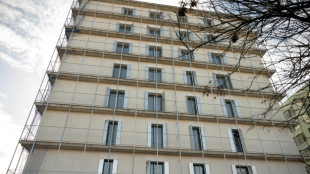 Spain unveils public investment fund to tackle housing crisis
Spain unveils public investment fund to tackle housing crisis
-
African diaspora's plural identities on screen in Berlin
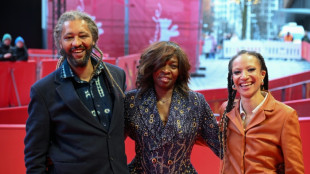
-
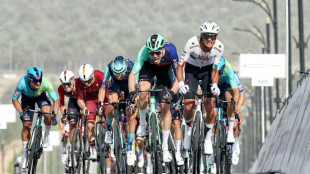 Del Toro wins shortened UAE Tour first stage
Del Toro wins shortened UAE Tour first stage
-
German carnival revellers take sidesweep at Putin, Trump, Epstein

-
 Killing of far-right activist stokes tensions in France
Killing of far-right activist stokes tensions in France
-
Record Jacks fifty carries England to 202-7 in must-win Italy match

-
 European stocks, dollar up in subdued start to week
European stocks, dollar up in subdued start to week
-
African players in Europe: Salah hailed after Liverpool FA Cup win

-
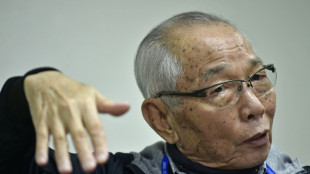 Taiwan's cycling 'missionary', Giant founder King Liu, dies at 91
Taiwan's cycling 'missionary', Giant founder King Liu, dies at 91
-
Kyrgyzstan president fires ministers, consolidates power ahead of election
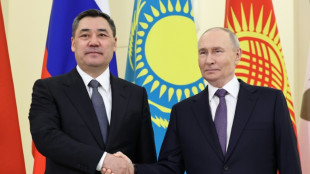
-
 McGrath tops Olympic slalom times but Braathen out
McGrath tops Olympic slalom times but Braathen out
-
Greenland's west coast posts warmest January on record
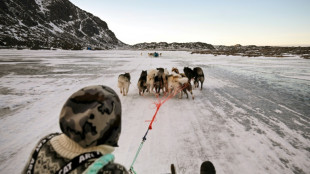
-
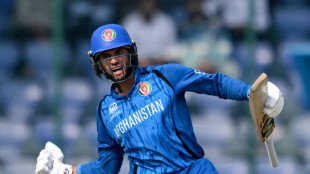 South Africa into Super Eights without playing as Afghanistan beat UAE
South Africa into Super Eights without playing as Afghanistan beat UAE
-
Madagascar cyclone death toll rises to 59
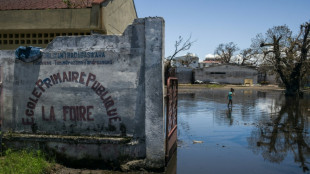
-
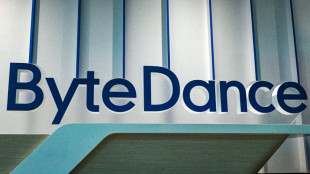 ByteDance vows to boost safeguards after AI model infringement claims
ByteDance vows to boost safeguards after AI model infringement claims
-
Smith added to Australia T20 squad, in line for Sri Lanka crunch

-
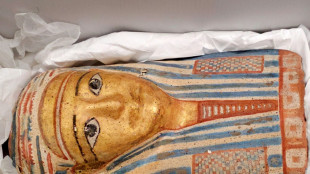 Australian museum recovers Egyptian artefacts after break-in
Australian museum recovers Egyptian artefacts after break-in
-
India forced to defend US trade deal as doubts mount

-
 Bitter pill: Taliban govt shakes up Afghan medicine market
Bitter pill: Taliban govt shakes up Afghan medicine market
-
Crunch time for Real Madrid's Mbappe-Vinicius partnership

-
 Rio Carnival parades kick off with divisive ode to Lula in election year
Rio Carnival parades kick off with divisive ode to Lula in election year
-
Nepal 'addicted' to the trade in its own people
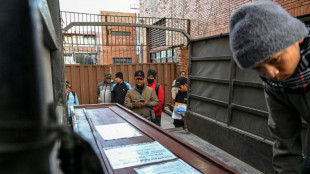
-
 Asian markets sluggish as Lunar New Year holiday looms
Asian markets sluggish as Lunar New Year holiday looms
-
'Pure extortion': foreign workers face violence and exploitation in Croatia
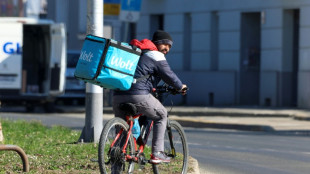
-
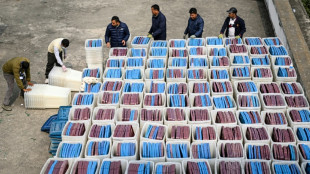 Nepal launches campaigns for first post-uprising polls
Nepal launches campaigns for first post-uprising polls
-
What to know as South Korea ex-president Yoon faces insurrection verdict
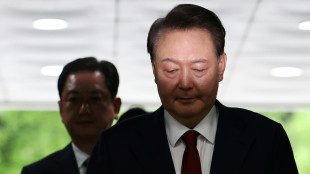
-
 'Train Dreams,' 'The Secret Agent' nab Spirit wins to boost Oscars campaigns
'Train Dreams,' 'The Secret Agent' nab Spirit wins to boost Oscars campaigns
-
Rubio visits Trump's 'friend' Orban ahead of Hungary polls

-
 Kim unveils housing block for North Korean troops killed aiding Russia: KCNA
Kim unveils housing block for North Korean troops killed aiding Russia: KCNA
-
Accused Bondi killer Naveed Akram appears in court by video link


How Finnish youth learn to spot disinformation
Finland is consistently ranked as Europe's most media literate country and the skills needed to spot online hoaxes are on the school curriculum, amidst a boom of mis- and disinformation campaigns.
"Who knew what a troll was before?" literature and Finnish language teacher Saara Varmola asked her 14 to 15 year-old students who all promptly raised their hands during a class at a Helsinki school in November.
"Who produced the material that you watch, what do you produce yourself and whether you have an ethical responsibility," Varmola tells AFP, as she lists the critical questions to ask when living in a global information environment increasingly characterised by misleading information.
By teaching its citizens how to critically engage with media content to debunk hoaxes, mis- and disinformation, as well as to produce content of their own, Finland wants to promote media literacy as a civic skill.
The Nordic country was among the first in Europe to outline a national policy for media literacy in 2013.
Updated in 2019, the national policy ensures media literacy is integrated in subjects throughout education from early childhood to upper secondary classes.
To enhance skills among adults and the elderly, libraries and NGO's are offering courses.
"Media literacy is essential to building societal resilience, and Finland realised this quite early on," Anders Adlercreutz, Minister of Education, told AFP.
"As traditional media is responsible for less and less of the information we receive, it's especially important to be able to critically evaluate what you read," he added.
- 'Not immune to influence' -
The index compares 41 countries' resilience to disinformation based on indicators such as quality of education, media freedom and trust in society.
Neighbours Denmark, Norway, Estonia and Sweden trailed Finland's top ranking last year.
A collaborative approach between many sectors help explain Finland's success in promoting media literacy among its 5.5 million residents, according to Adlercreutz.
"It's not just the school, it's the media, the newspapers, businesses, the libraries, museums. Everybody sort of takes part in this work," he said.
According to Leo Pekkala, Deputy Director of Finland's National Audiovisual Institute (KAVI) -- an institution mandated to implement the country's media literacy policy -- it also boils down to Finns' trust in its societal institutions.
"We Finns still have a very strong trust in the defence forces, the army, the police and the government. We trust our politicians and we also trust the media", he said.
Still, between sharing a 1,340 kilometre (830 miles) border with Russia and facing the rise of artificial intelligence, Finland is not immune to the influence of dis- and misinformation campaigns, Adlercreutz warned.
"I'm not so sure that we have yet been tested fully in this matter", he said.
- Critical thinking key -
In the snow-covered school in Helsinki, Varmola handed out assignments to her students with questions related to online disinformation: 'Can youtubers and streamers mislead?', 'Is sponsored content a way of influencing through information?'
"Yes, youtubers and streamers and people on social media can do it. In my opinion, it's something you come across", 8th grader Bruno Kerman said in a discussiong with some of his fellow students.
"Yes, and who is preventing them?" classmate Niilo Korkeaoja continued.
The students said the education system had equipped them with abilities to spot suspicious information online, critically analyse content and verify sources they encounter on social media networks such as TikTok, Snapchat and Instagram.
"School has taught me to interpret messages in the media, also those written between the lines," Ronja Turunen, another student, said.
The country has a long tradition of promoting media skills among its citizens -- when its free comprehensive school system was introduced in the 1970's, the first education curriculum already referenced mass media education.
While education has evolved and adapted to the changing media environment and the advent of digital technologies, the key objective of teaching critical thinking has persisted, Pekkala noted.
"Our overall objective is to promote the kind of skills that will enable people to think and act critically and be active members of a democratic society," he said.
A major challenge now is to keep all its citizens up to date with the rapid changes in the digital sphere, including for the country's growing elderly population who may never have learned how to detect fake news on the internet.
T.Ward--AMWN